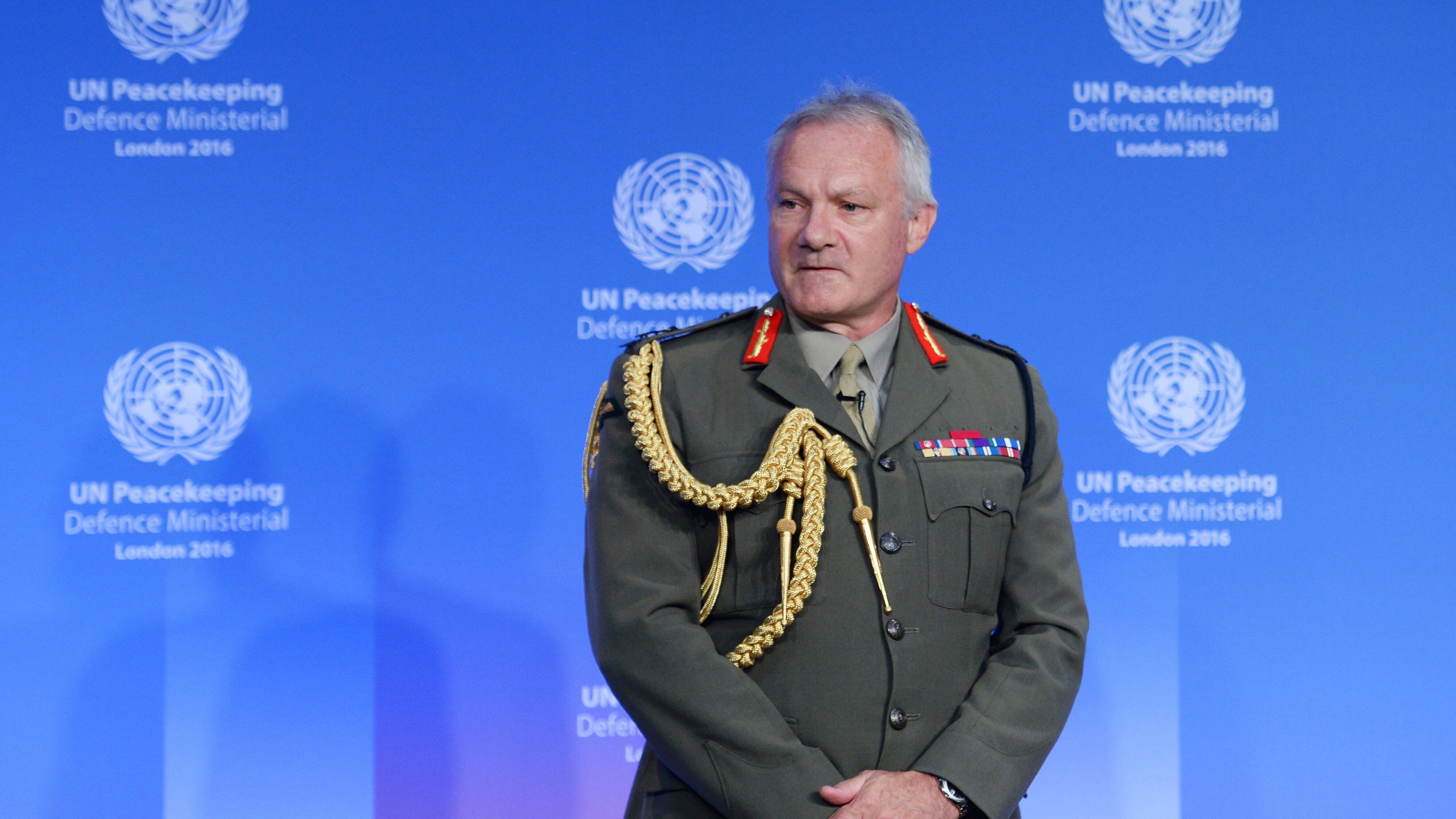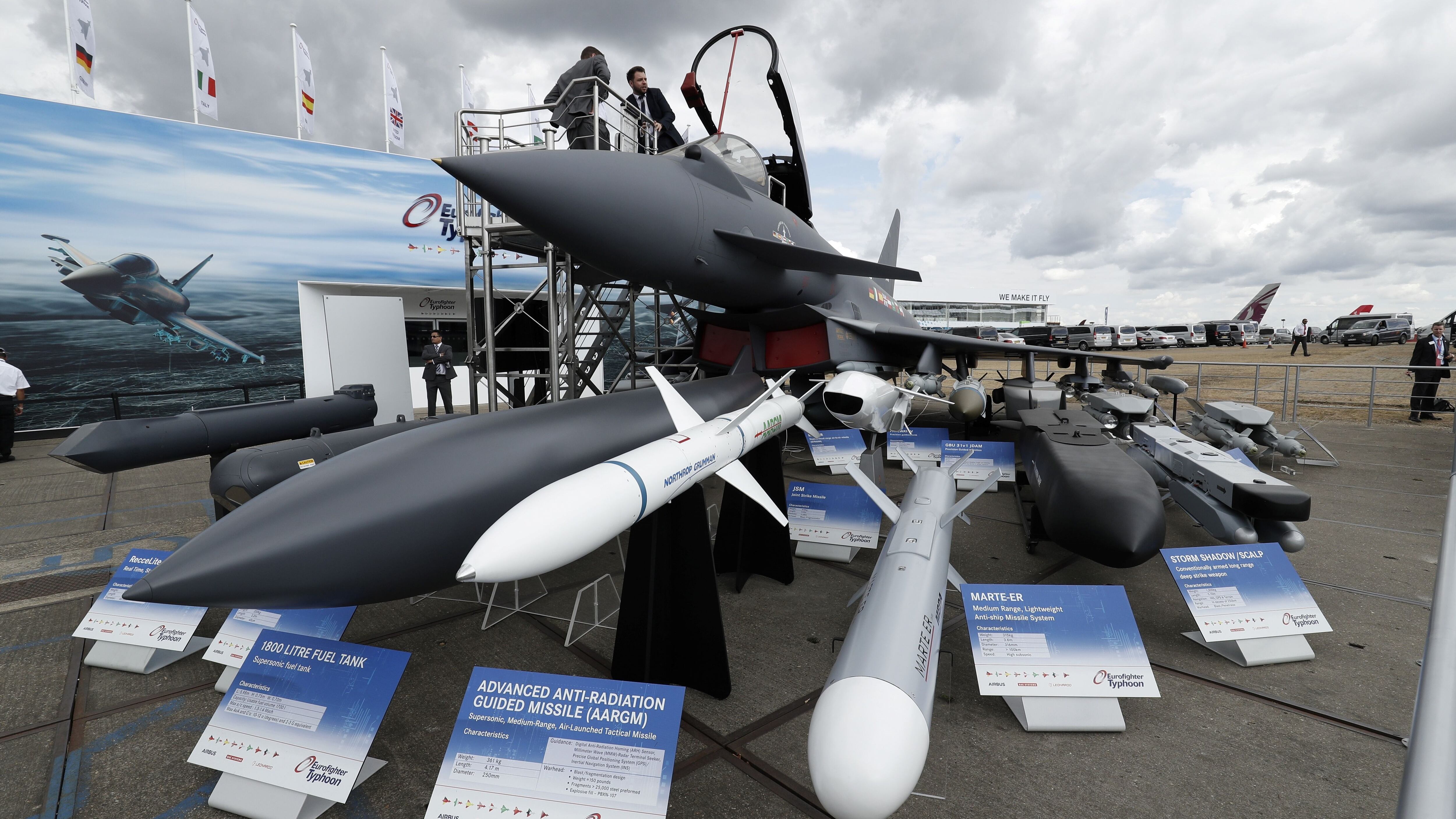LONDON — When Britain’s Ministry of Defence announced last year plans for a makeover of its Joint Forces Command as part of a wider modernization effort, it revealed few details.
Now, the country’s vice chief of the Defence Staff has somewhat lifted the lid on what changes it has in mind: a revamped Joint Forces Command with new levels of authority to drive through coherence into Air Force, Army and Navy programs, more focus on generating strategic capabilities, and the ability to better control personnel requirements.
Those changes were outlined by Gen. Gordon Messenger during a recent interview by Defense News in Washington.
RELATED

Joint Forces Command was created in 2011 when the MoD linked the fighting commands of the Air Force, Navy and Army by standing up a new office. In essence, JFC has the lead on areas of interoperability between the three services.
All four commands control their respective budgets, and are known as top-line budget (TLB) holders. But that layout doesn’t quite fit JFC the same way it did the three military branches, Messenger said, which provided the impetus to change JFC.
“What we found was JFC wasn’t homogeneous. It wasn’t the same sort of TLB as the three services because it had a remit to deliver pan-domain, pan-service enabling capability, and therefore we need to view it more as an agent of the Ministry of Defence, of head office, and give it the right levels of authority to drive coherence into the Army, Navy and Air Force programs,” Messenger said in a March interview. “Getting the JFC in a place that is separable from the single services, and acting as an agent of head office, driving coherence and interoperability is where we’re trying to move it to."
However, the proposed changes to JFC are not solely driven by budgetary issues. They are also driven by a desire for JFC to generate what Messenger called “strategic capability,” comparable to how the services generate operational capability.
"So our special forces are force-generated through JFC. Our cyber capability is force-generated through the JFC, and we’re looking to deepen our ability to deliver defensive cyber capability, which will be a Joint Forces Command responsibility,” the Royal Marine officer said.
“We are examining certain other aspects of what that [capability] would be, so there’s some further studies that are going into that, but essentially it becomes your force generator for strategic effect,” he added.
Messenger said the upcoming revamp of JFC will also address personnel issues around, and he acknowledged, albeit diplomatically, that in the past the command may have come off as second-best at the hands of the other services when it came to staffing priorities.
“It’s [JFC] tended to be a little bit of a poor cousin in terms of personnel priorities. Single services are quite sort of, for justifiable reasons, keen to career manage and work force plans. JFC tends to sort of be a bit of an adjunct to that, and what we’re trying to do is to improve the ability for the commander of JFC to manage his or her workforce in a slightly more autonomous way than currently,” he said.
RELATED

Challenges ahead
The changes outlined by Messenger come months after Defence Secretary Gavin Williamson flagged the MoD’s intention to further empower JFC with the announcement of a defense modernization program last December.
“A major new step will involve improved JFC that will be in a better position so that defense can play a major role in preventing conflict in the future and improve our cyber operations and capabilities across the armed forces, but also across government as well,” he said.
Williamson’s rollout of the modernization program came days after he named Gen. Patrick Sanders the new commander of JFC. Sanders, previously the commander of the field army, takes up his new post May 9.
Peter Roberts, the director of military sciences at the Royal United Studies Institute think tank in London, said Sanders faces a “formidable challenge to deliver what so many people want, but few people understand.”
“For a commander to have his head into the detail of military education, offensive cyber capability, communications, electronic warfare, satellites — a huge array of things — its a massively difficult problem,” he said.
“It is down to the commander and his infinitely small staff to deliver on a myriad of projects, all of which are difficult and exceedingly complex and cannot be cohered between the competing demands of the three fighting arms," Roberts continued. “It is an insanely difficult group of projects to run together, and the staff there really have a tough job ahead of them.”
Few would dispute the importance of a British joint forces command in today’s complex, data-driven military environment, but Roberts said that while JFC is a great idea, it won’t work without the right resources.
“It’s perfect as a theory. The problem comes when you don’t resource it correctly, nor have sufficient expert people to manage it correctly. JFC is a tiny command with a massive swathe of responsibility,” Roberts said.
The analyst said the shortcomings in the JFC are well known and not only related to financial or manpower resources.
“The manpower issues, the resources, the priority they get, or don’t get, is widely understood and is at the heart of some of the change programs Gen. Nick Carter, the chief of the Defence Staff, is implementing,” Roberts said. “One of the key problems is that while JFC is providing services to the three front-line commands, the fighting arms, it is also delivering on major programs for the MoD, like the joint force cyber group.
“JFC is a very disparate organisation involved in cyber, space, communications, novel weapons, electronic warfare, education, doctrine, logistics, joint training — all those problem-child projects that none of the other front line commands really wanted to take on in the first place. Unsurprisingly it has found it exceptionally hard to deliver on the lofty aspirations that were placed on it when it was first formed.”
The analyst said the MoD must be more selective in what areas of military responsibility JFC takes on.
“The MoD needs to take some brave decisions. For example, it would be wise to pass something like space systems to one of the single services, like the [Royal Air Force], to deliver on it. It may be wiser to push electronic warfare back to individual front=line commands … simply because the coherence they aspire to have in JFC is not being delivered and nor is there a process of delivering it in a cost-effective way," he said.
“In order to get the best out of it rather than lumping all the difficult projects into JFC, the command needs to be more selective and realistic about what it can deliver on, and pass the rest back to the other commands who have far more staff and expertise to deal with it."
Andrew Chuter is the United Kingdom correspondent for Defense News.
Aaron Mehta was deputy editor and senior Pentagon correspondent for Defense News, covering policy, strategy and acquisition at the highest levels of the Defense Department and its international partners.








